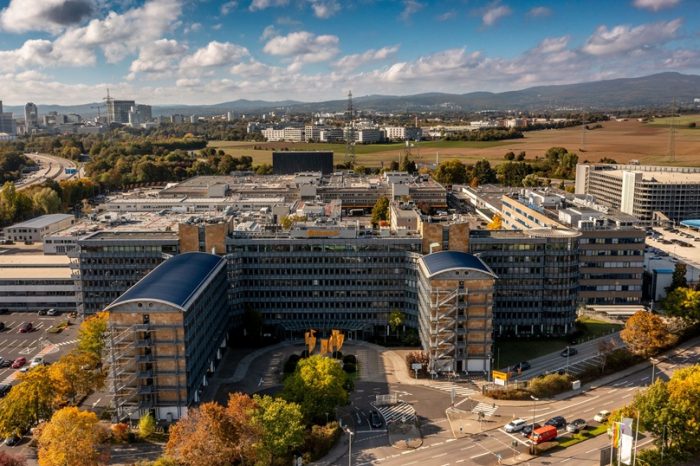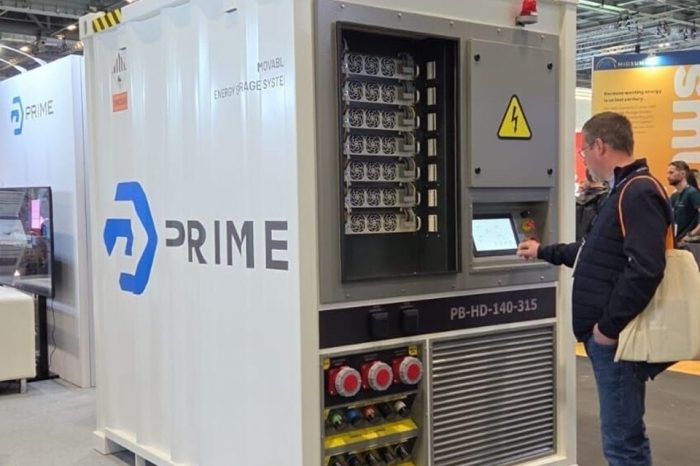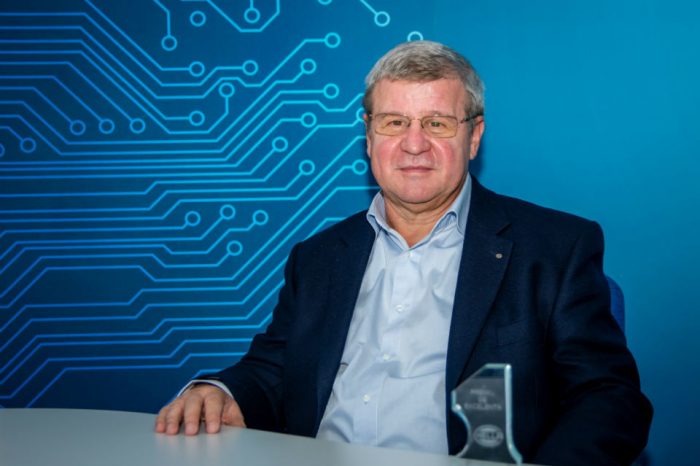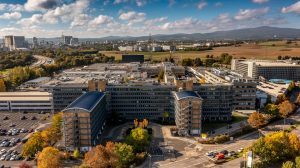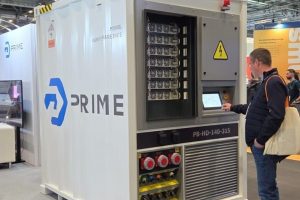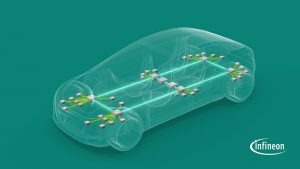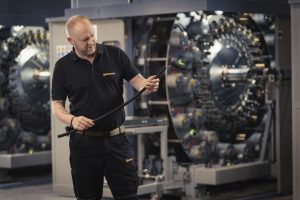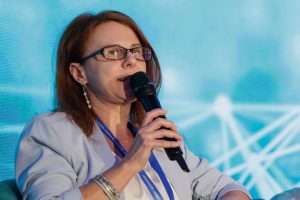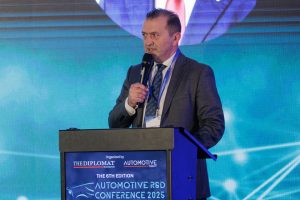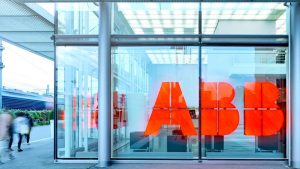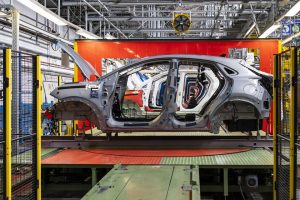Christian von Albrichsfeld, Continental Romania: We work for sustainable urban development through connectivity technologies
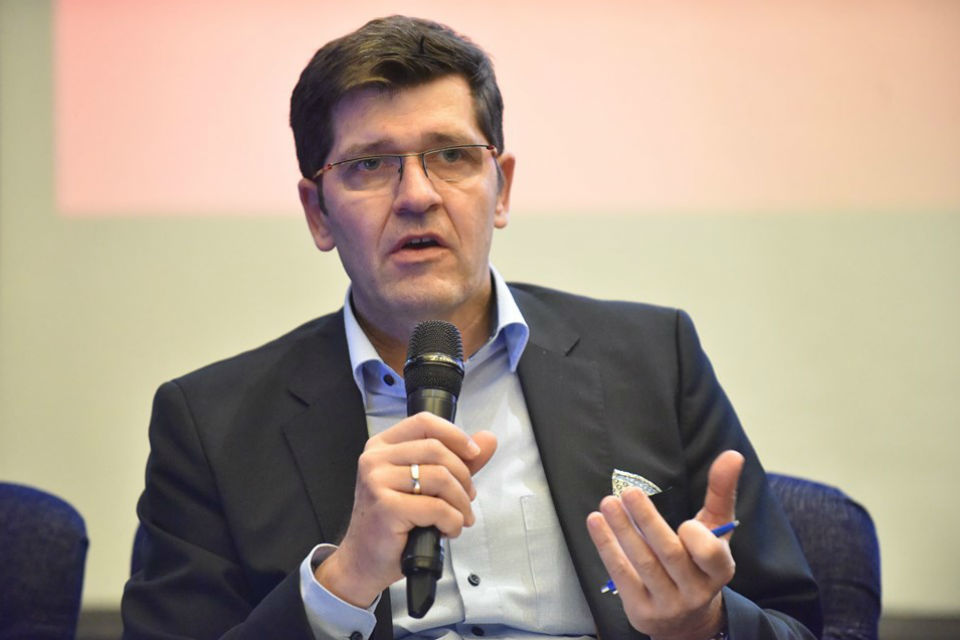
German car component and tyre maker Continental has reached 19,700 employees in its seven production units in Romania and four research and development centres. The company already works with over 5,700 engineers and IT specialists for research and development. Continental invested 240 million Euro in Romania last year. The group plans to invest a similar amount this year.
Continental is present with production units and R&D centres in Timisoara, Sibiu, Carei, Nadab, Brasov, and Iasi, it runs a joint venture in Slatina and has a tyre distribution centre in Bucharest.
The company is looking for experienced engineers, software and hardware specialists, mechanical engineers and young graduates from technical universities for the 250 career opportunities open within the organization. The company is also looking to expand its offices in the city.
Automotive Today talked to Christian von Albrichsfeld, Head of Country Continental Romania, to find out more about the company’s plans and what the challenges are it faces on the local market.
How do you see the evolution of the Romanian automotive industry?
The auto industry is changing, and Romania is no exception. The auto segment in Romania has grown in recent years, in all its branches. Car production has grown significantly over the last two years, and the auto parts and technology development industry has grown in the same way. One of the things that directly influences the development of this industry is software. Cars are getting better, intersections are getting smarter, and the relationship between people and this infrastructure is based on lines of code. One third of Continental’s more than 20,000 employees in Romania are engineers and IT specialists who contribute fully to the development of these technologies and thus to the growth of the entire automotive sector.
One important aspect that we cannot avoid is represented by the fiscal changes made very often in recent years. Another factor that is not to be neglected, unfortunately, concerns the increase of costs in Romania, especially regarding the labour market costs that have increased in the last two years being imposed by the legislative requirements and the fiscal decisions. These costs are not imposed by the market and cannot yet be covered by increased productivity. These changes create a state of uncertainty that rather urges caution. Such legislative changes have a major impact on the automotive industry, one of the most important branches of the Romanian economy.
The results are hardly unexpected. Companies react by adjusting their product portfolio, by investing in the automation of production units, which means that the same volume of work is done with fewer people. Some companies have reduced or even closed their production units in Romania. And as a consequence of these measures, we can see an increasing trend of investments in neighbouring countries.
What is your view on the future development of the local industry?
The development of the industry is closely connected to the legislative and fiscal predictability. Frequent changes mean a restraint in terms of investments, long-term plans are subject to change, and the unexpected affects business.
The direction in which the auto industry goes worldwide influences the domestic market. New technologies are developed in international teams, the supply of products is done worldwide, and so the way the market reacts internationally has a major impact on what is happening internally.
As far as our company is concerned, Continental goes in three directions of great importance in its development: it determines a growth of the automotive field through its innovative software solutions, it assures the quality of its products, and it attaches a special importance to the employees. The investments in Romania were made in real estate, factories and equipment and software. Our technological impact in the automotive sector ensures a constant growth that represents the source of safe, comfortable, and intelligent mobility. Last year, the Group invested 240 million Euro in its locations in Romania.
What are your future projects for Romania?
In three technological areas, Continental influences long-term mobility: propulsion systems (conventional, hybrid and electric), autonomous driving, as well as connectivity and cloud together with data management. More and more vehicles are connected to the network through Continental software. While machines already need more than 100 million lines of code today for their functions, a tenfold increase is expected for future functions.
Romania is among the countries where Continental works on various projects that involve the use of artificial intelligence to provide human-machine systems with human understanding. Artificial intelligence plays an important role in taking over human tasks. With AI, the vehicle can interpret traffic situations, even when complex and unpredictable.
In the propulsion area, international teams of Romanian engineers are working on AllCharge technology. This transforms the electric battery into a “universal charger” for all types of cable charging stations. Thus, a vehicle can be powered at any charging station, at an output speed of up to 800 V and up to 350 kW. Drivers also have 230 V AC available for use on board if required. Our AllCharge V2D (vehicle-to-device) system technology also allows the car battery to be used for charging mobile devices, be they laptop, refrigerator, or electric grill.
Automated highway management is a reality today. Cruising Chauffeur technology helps the driver to relax. In exceptional cases, if it can no longer take control of the steering wheel, for any reason, then Cruising Chauffeur safely brings the car off the road.
The company works for sustainable urban development through connectivity technologies. Since 2017 Continental Romania has been taking steps in the direction of smart cities in Timisoara, in partnership with the City Hall and Orange Romania. Citizens can enjoy free secure Wi-Fi internet in Victoriei Square, Unirii Square, and Freedom Square, by simply selecting the “Continental Free Wi-Fi” network. Through the initiative of Continental Romania, Timisoara City Hall has access to the City analytics platform provided by Orange, through which the municipality can use the necessary information useful in managing the tourist flow from Timisoara.
From this year 2019, in a project together with the municipality of Sibiu, the company offers in partnership with Orange, free access to Wi-Fi in over 100 buses of the public transport company. The company plans to expand its range of mobility products and technologies in the cities in which it operates.
How do you cope with the lack of skilled workforce?
In recent years, Continental has managed to cover the need for staff. Through our activities, the products and technologies we work with, as well as the very good collaboration we have especially with the educational institutions (university and pre-university), we are seen as the top employee and the most attractive company in Romania, according to some independent studies.
Continental seeks and implements solutions to attract new colleagues to the Continental team. The company partnerships with the Romanian universities offer solutions to fill the positions available within the company, so we support the training of students through internships during the summer, private scholarships and the preparation of the diploma work with Continental specialists. At the national level, only last year about 1,000 students took place in the Continental internship.
We also pay more attention to the students. We support young people in high school to participate in national and international competitions. The students of the vocational school offer a complete training for the future trades needed in the market.
But we see that attracting staff is a challenge in the labour market. Companies themselves cannot solve such a crisis, but they can take certain measures to stimulate market development. We provide training and education for our employees.
However, a macro-level framework is needed to find and implement labour market incentives. In Romania, we have over 22 percent of people working in agriculture while in western European countries this percentage is below five percent. Therefore, there are areas in the Romanian economy which are not used to their true potential. These employees in the automotive industry have a great impact on the economy through taxes they pay to the state as a result of the salary they receive, itself resulting in an increased standard of living.
What kind of specialists are you looking for in Romania?
The positions in the automotive industry are extremely varied: from software engineers, electronics, mechanics, or system engineers, to project managers and managers, to procurement and logistics specialists, to production line operators and technicians, to everything that stands for support. Each of these areas comes with its own challenges. For example, in terms of engineers, all companies are looking to attract software engineers, which is why these positions are harder to fill. For managerial and project management positions, people with experience are needed, so that is another difficult category. In short, in the current context of the labour market, you need to be creative in order to attract the right profile people. In addition, the activity of the automotive industry is becoming more and more focused on services and digitalization. Projects we work on, such as autonomous cars or communication between vehicles and / or infrastructure, require experts in artificial intelligence, cyber security or the Internet of Things.
What are the legislative changes with a big impact on the automotive industry?
I would say the “fiscal revolution” of the last few years has disturbed the private environment. Frequent changes in tax legislation have led to reluctance and a slowdown in investment. Also, the wage policy in recent years has pushed wages past what is representative of the employee’s productivity level.
These factors – but there are others – have had an important impact on the company’s activity in Romania, as well as on the entire private environment throughout the country.
(From the print edition)


